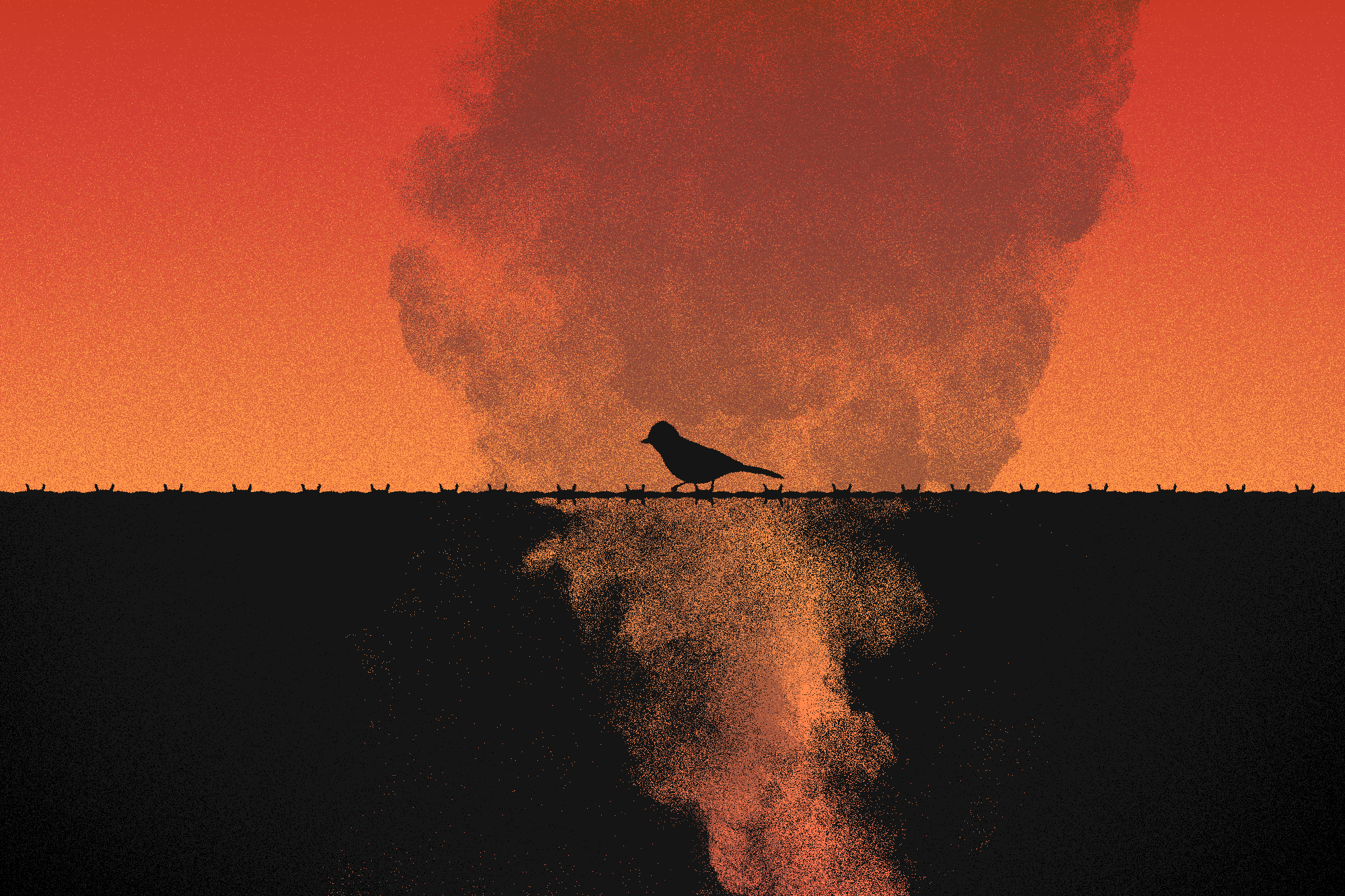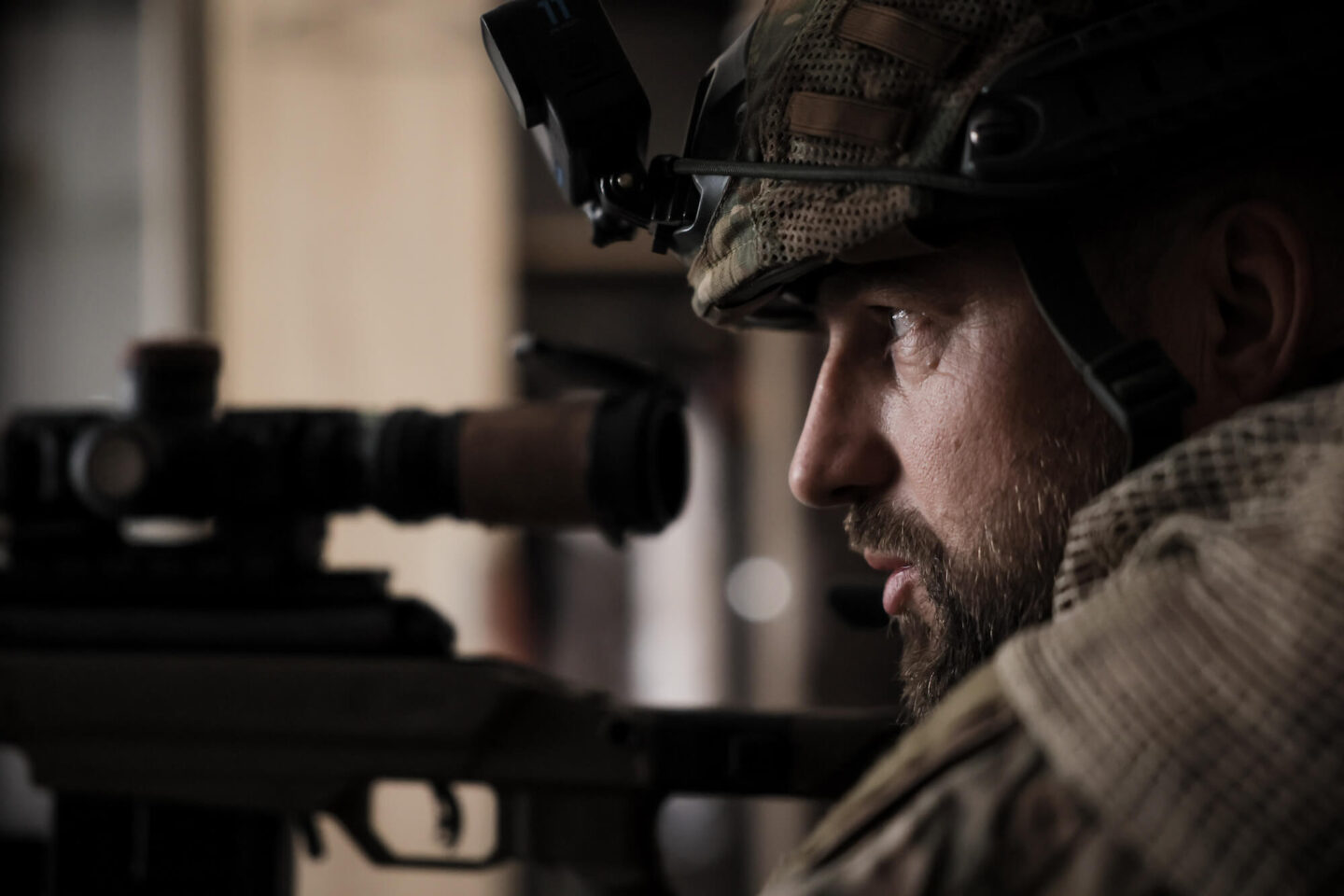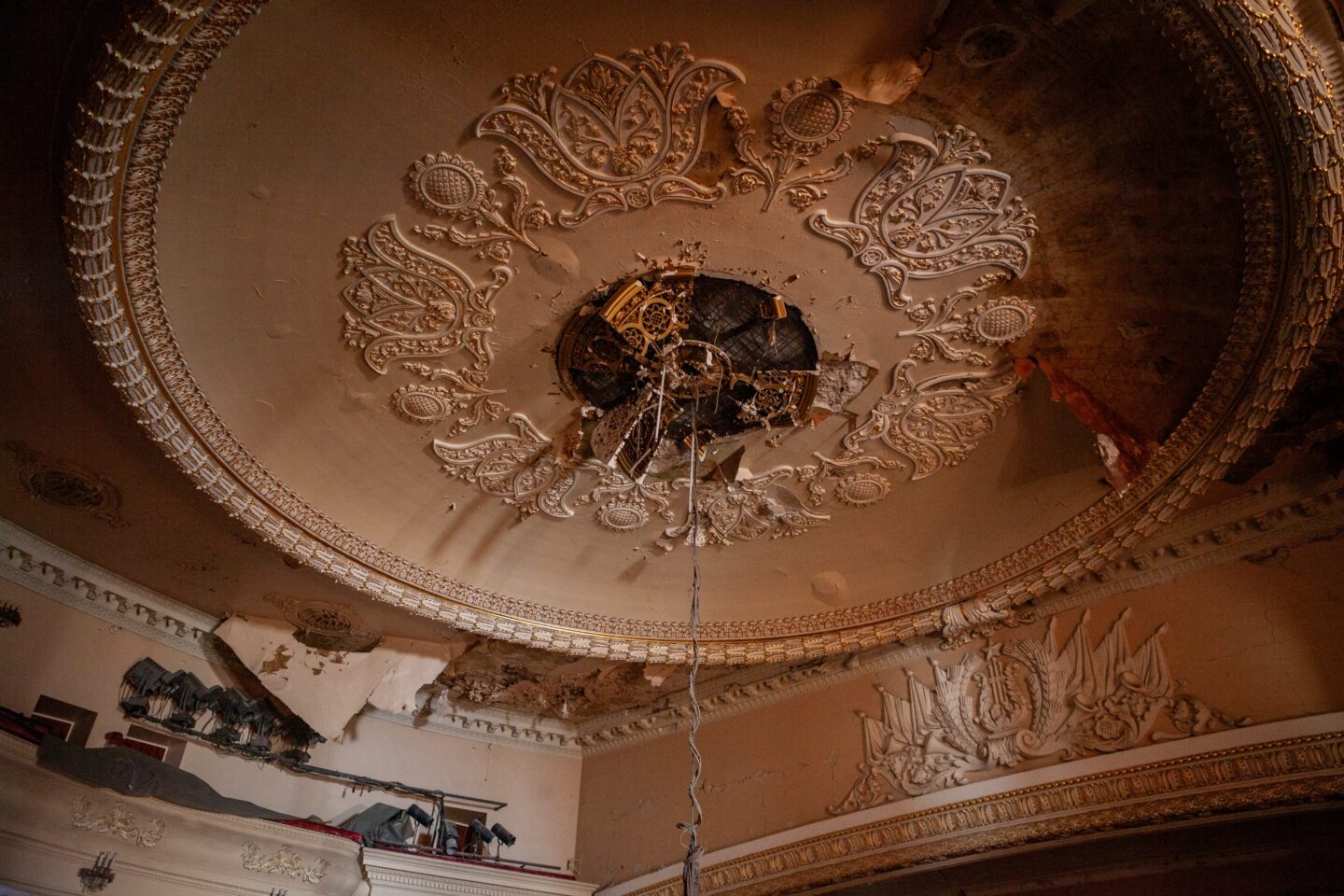“Just look at this,” my friend fighting on the Zaporizhzhia front writes to me over Signal, attaching a video of a great tit. The bird flies right up to his outstretched hand—probably wanting a piece of his soldier’s rations. It’s a large great tit, with a black cap and a yellow vest. But here’s the thing: you don’t notice it in the video right away because you first focus on the sounds—thud, thud, thud. And on how the image trembles slightly, as the phone shudders with each explosion. This is the familiar audio backdrop of the place where my friend is now. And a familiar fear chills me for a second—not from the blast, no, but for his life. For his and his comrades’. I chant what is either a mantra or a prayer, each of their names stringing together like rosary beads, even though I’ve never seen most of them in person. Then a strange, absurd thought crosses my mind: how are the great tits managing there, in the combat zone? Among trees and homes shattered by shrapnel, on land now riddled with mines? “I’ve already seen storks here too,” he writes, the next message coming in.
“How do they keep coming back?” I wonder, remembering how the stork nests across the western part of the country slowly empty as they migrate east or south.
This friend of mine—a gifted photographer who can capture both the indifferent cruelty of war and the absurd tenderness surrounding him in nature and soldiers’ routines—sends me photos mostly in the mornings or evenings, just to let me know he’s there. He’s okay. Sometimes I send him photos from the places I visit or from my dear field near Lviv. Look, I tell him, the world you’re defending is also still here. Sometimes it even looks unbearably beautiful. At times, that beauty hits harder than the horror of daily losses, which the mind slowly adapts to just to keep functioning. We never say things like this to each other, of course. We’re not big on words. Often, it’s the birds that speak for us.
His—captured in photos or videos from bunkers, windbreaks, or positions. Mine—most often from the fields. Partridges, larks, finches, willow warblers, wild ducks… The field resonates with their voices, the flutter of their wings blending with the wind. Sometimes swans fly above our heads—mine and my friend’s, in different corners of the country. Swifts have returned to our apartment blocks in the suburbs. My friend sent me a photo of swallows rebuilding a nest under the planks that were once a roof. Now, the evening sun streams through those planks because the roof is a sieve of holes, with remnants that barely shelter their crafted nest.
I look at the photo and think about the swallows darting back and forth, carrying clumps of clay, bits of grass, securing them with sticky saliva. I can’t shake the absurd question: why? Why build a nest, invest so much work in something that could be wiped out with the next Russian strike? Why return at all to this land where everything trembles-burns-explodes, disappearing from the map of normalcy for at least two and a half years. Or maybe all ten if we count from the start of the fighting in eastern Ukraine.
What makes birds raise their fledglings here, who will likely return next year to this blood-stained home? A sense of belonging, an inability to do otherwise? Can swallows feel this?
And cranes? Gray and steppe cranes, extremely rare, yet ones whose homes on the Kherson plains and along the Black and Azov Sea shores are being devastated by fire. Artillery fire. Fire from mines exploding. Or the destructive fires that the occupiers neither extinguish nor allow others to put out.
And what about pink pelicans, listed in Ukraine’s Red Book, that inhabit the Black Sea Biosphere Reserve, including the well-known but, unfortunately, temporarily occupied by Russians Kinburn Spit?
And the great bustard? It simply has nowhere to flee. Unlike the storks, swallows, and pelicans, it is largely sedentary, needing the open spaces, the steppes of Kherson, or the places it favors on Tarkhankut, the Kerch Peninsula, Prysyvashshia. Yet, imagining what is happening now to the before-untouched steppe, especially in Askania-Nova, Europe’s largest steppe biosphere reserve, is almost impossible. The reserve was occupied in the first days of the full-scale invasion, yet until mid-March 2023, it was still managed by the Ukrainian administration. Since its transfer to the “State Autonomous Institution ‘Biosphere Reserve Askania-Nova'” under Russian jurisdiction, information on the state of the animals, soil, and valuable collections has barely reached the civilized world. And what has reached us—for example, reports of so-called “exchanges”, essentially the relocation of animals from Kherson Oblast to Rostov-on-Don—doesn’t promise anything good.
Ultimately, the Russians are experts at stealing (which perhaps is only outmatched by their talent for lying and violence). During this relatively brief (from the time perspective) occupation alone, they’ve looted countless items: household goods from apartments in Bucha and Irpin, exhibits from the Kherson Art Museum, children, people, voices… I’m not joking, sadly. Even birds’ voices. Russians have come to this land with war again, and now finches, small singing birds, even if they find somewhere to live again, may lose their unique regional songs. Simply forget them. Like people who have “forgotten” their roots, traditions, and ways of life under the pressure of the imperial system, deportations, displacements, gulags, punitive psychiatry, and the sticky web of propaganda.
“Forgotten” because it was relatively safer. Giving up a part of themselves to save something larger—their kin.
But what will happen when, finally, the instinct to preserve their species compels some birds to avoid the war-torn areas? This has already happened with the greater spotted eagle, which now flies an extra 85 kilometers, practically non-stop, between its wintering grounds in Greece and its breeding sites in Belarus. This puts it at risk of exhaustion and death, even as an already threatened species.
And who loses more if they don’t return one day—the birds or humanity?
Humanity as a whole, as a species that inhabits this single, irreplaceable planet. Strange and maybe a bit dramatic to think about at a time when the end of the world feels like something you might never live to see, splintered instead by an endless stream of small, private apocalypses. But it’s impossible not to think about it when your country is, for the first time in the history of that very humanity, investigating environmental crimes as war crimes and struggling to establish the term “ecocide” in the international law system.
I tear my gaze from my laptop and fix it on the linden that bloomed ridiculously early this year. Young, crazy magpies, hiding among its branches, boldly taunt a cat. A collared dove coos on the power line (the current in which periodically stops running due to blackouts and renewed Russian strikes on the power grid). In the open sky, swifts trace invisible lines of dance, like tiny civilian planes—the large, metal ones haven’t been seen here for more than two years.
Everything is rushing to live, fully, with every fiber, with every stem, with every voice, with all its soul, as if aware of its own accelerated ephemerality.
Especially if my friend—who just sent me a video of a steppe eagle, and then of a sun-shower with the call of a pheasant in the glow of the setting sun—if my friend and thousands of his comrades can no longer defend it.
I really need to find a feather from a jay’s wing for him, as I’ve wanted to for so long—a childhood symbol of hope.
Written for the Slovak publication Knižná revue #7-8, 2024.
Kateryna Mikhalitsyna —writer, cultural manager, member of PEN Ukraine.
Illustration — Vadym Blonskyi
Translation — Iryna Chalapchii
§§§
[The translation of this publication was compiled with the support of the European Union and the International Renaissance Foundation within the framework “European Renaissance of Ukraine” project. Its content is the exclusive responsibility of the authors and does not necessarily reflect the views of the European Union and the International Renaissance Foundation]





